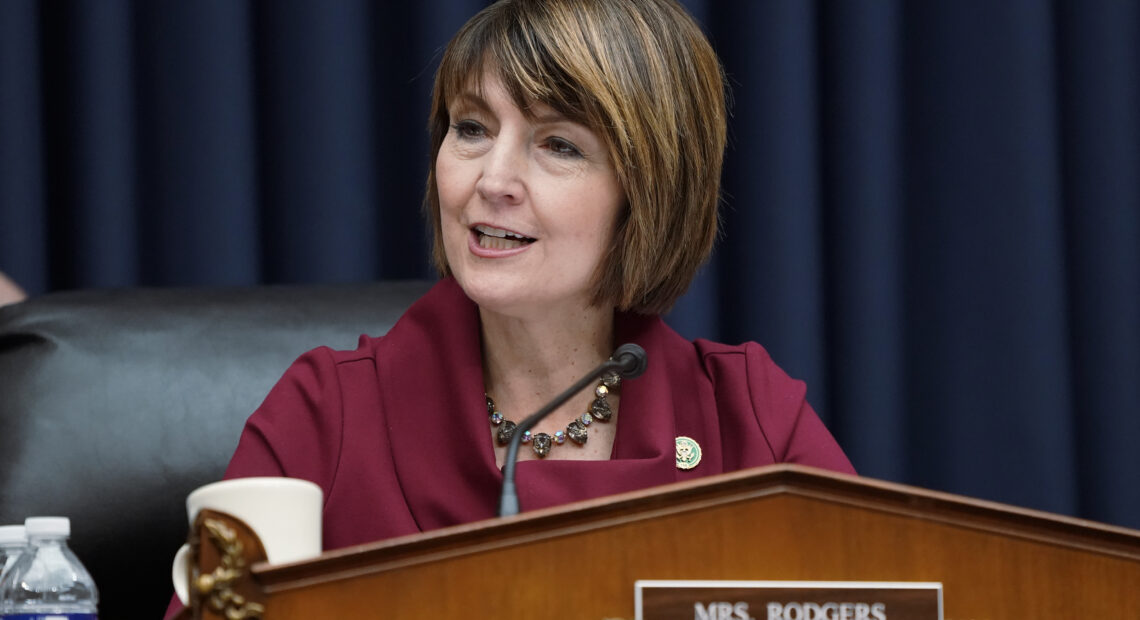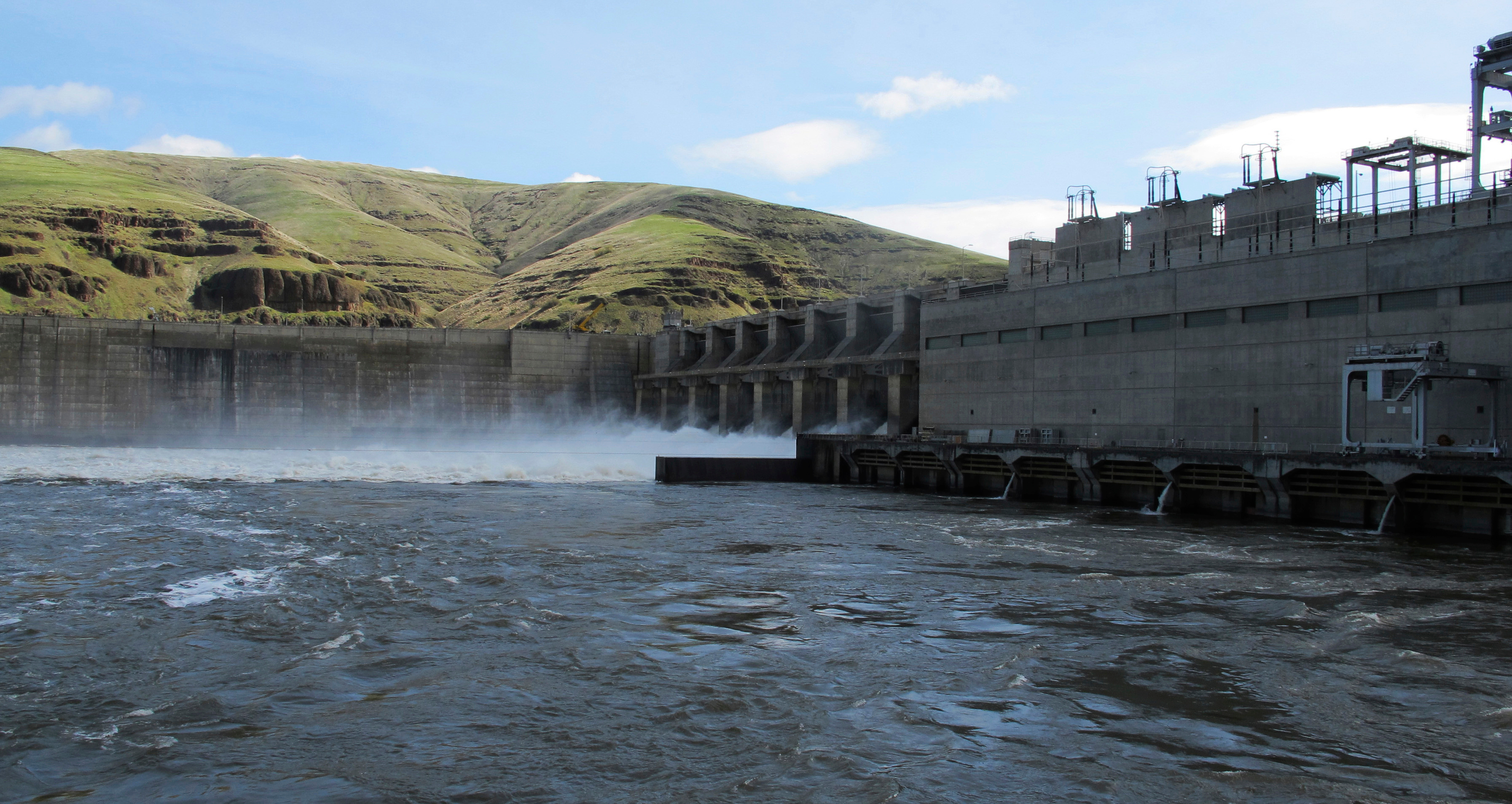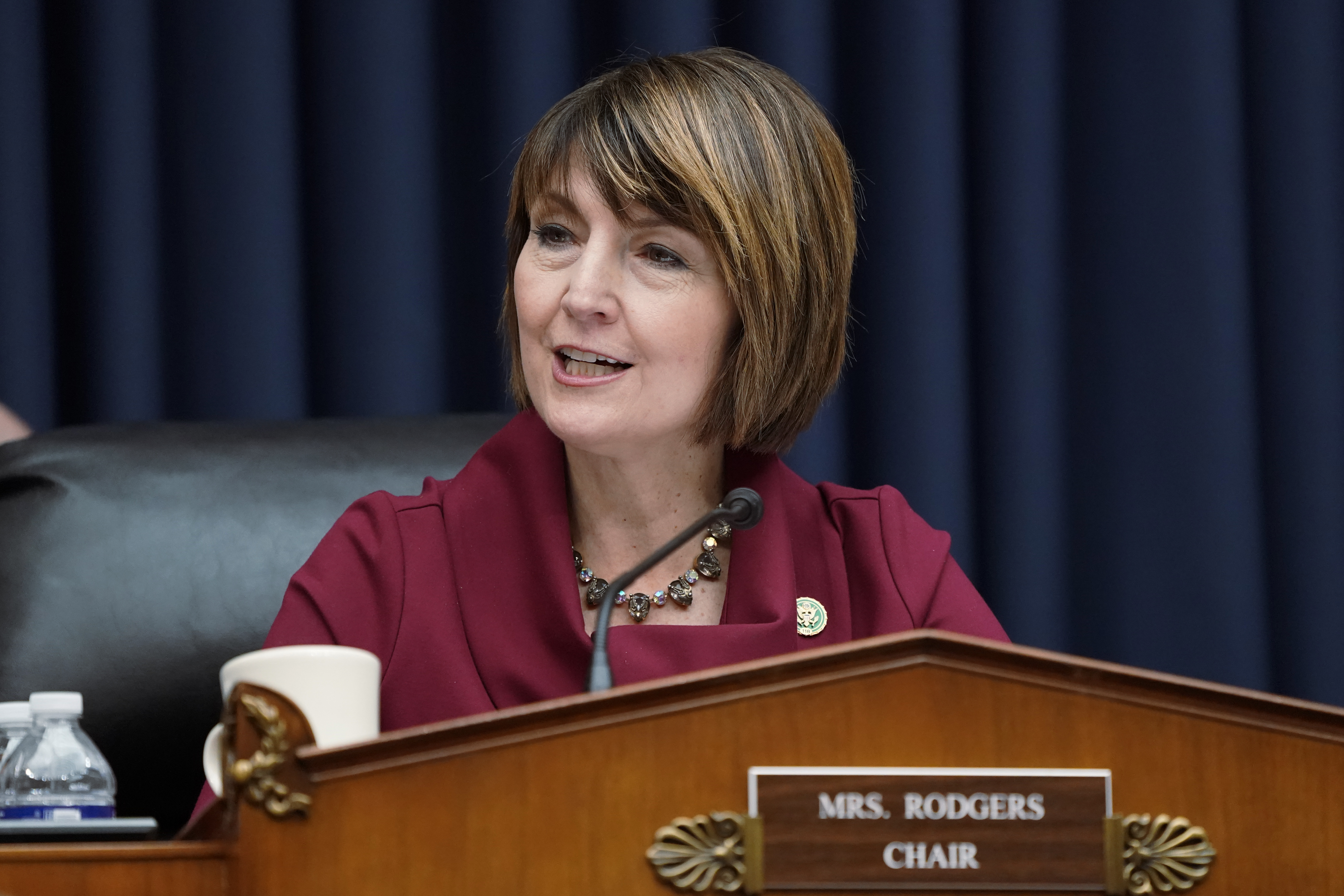
Washington’s McMorris Rodgers pushing for more hydropower, questioning ‘Big Tech’
Listen
(Runtime 1:04)
Read
Pushing for renewable energy policy, and questioning the influence of social media on youth are two of the biggest areas of focus for Washington Republican Representative Cathy McMorris Rodgers as chair of the House Energy and Commerce Committee.
“There’s so much opportunity as a chair to really bring Eastern Washington to the forefront and highlight solutions for people,” she said.
Rodgers said two of her top concerns are energy and the environment.
“I have goals around hydropower,” she said. “In particular [nearly] 70% of Washington state’s electricity energy is generated from hydropower. It’s clean, it’s reliable, it’s affordable. And it’s been a competitive advantage for us in the Pacific Northwest.”
But not everyone is a fan of hydropower dams. To remove – or not to remove – the four Lower Snake River Dams is a contentious and ongoing debate in the Northwest. A myriad of voices from agriculture, activist groups, tribes and community stakeholders seldom agree on how to move forward.
In a statement last August, Washington Gov. Jay Inslee said breaching the dams offers the best chance of protecting endangered salmon.
Adult Snake River salmon migrate from the ocean up through the Columbia River and through the four Lower Snake River dams.
“But, the hydropower and economic benefits of the dam are significant, and breaching them before we have other systems in place to replace those benefits would be disastrous,” said Inslee.
According to a statement this week from the Nez Perce Tribe,“The overall trajectory of salmon is toward an inexorable future extinction. In treaties with the United States, it is healthy and harvestable returns that the tribe expected, not returns that require fish to be listed under the Endangered Species Act for decades.”

Water moves through a spillway of the Lower Granite Dam on the Snake River near Almota, Wash. The benefits provided by four giant hydroelectric dams on the Snake River must be replaced before the dams can be breached to save endangered salmon runs, according to a final report issued Thursday, Aug., 25, 2022, by Gov. Jay Inslee and U.S. Sen. Patty Murray. (Nicholas K. Geranios / Associated Press)
Snake River Chinook salmon remain protected under the Endangered Species Act. The Nez Perce Tribe said the cost of hydropower “will have been the extinction of our irreplaceable salmon.”
A draft report released last June by Gov. Inslee and U.S. Sen. Patty Murray, D-Wash., found that if the dams were breached, the costs to replace the irrigation, recreation and energy produced, among other benefits, would range between $10.3 billion and $27.7 billion.
“We have to be able to answer the question, how do we replace the electricity being generated?” Rodgers said.
More energy, fewer carbon emissions
Along with more hydropower, Rodgers said she wants to see investment in technology and innovation to bring down carbon emissions, such as nuclear power.
“Washington state’s been leading in the next generation nuclear reactors that are small modular reactors, whether it’s TerraPower or X-energy, both based in Washington state,” she said.
One of Rodgers’ goals is licensing reform to speed up the process of converting non-powered dams to hydroelectric. Rodgers said the arduous federal permit approval process has become a big barrier to energy projects such as Amazon’s solar farms.
While energy is a big focus of her policy as chair, Rodgers said she also is looking into issues surrounding the biggest information and technology firms in the United States, known as “Tech Giants” or “Big Tech.”
The five biggest technology firms in the country are Alphabet (Google), Amazon, Apple, Meta (Facebook), and Microsoft.
“There’s concern around data collection, and the impact social media platforms and apps are having on our kids,” Rodgers said. People attribute increased stress and anxiety in our youth to social media, she said.
Shou Chew, the CEO of TikTok, a video-based social media app created in China, is expected to testify before the Energy & Commerce Committee March 23, according to an announcement on the committee’s website.
“Big Tech has increasingly become a destructive force in American society. The Energy and Commerce Committee has been at the forefront of asking Big Tech CEOs, from Facebook to Twitter to Google, to answer for their companies’ actions. These efforts will continue with TikTok,” said Rodgers in the announcement.
In addition, Rodgers said she intends to reintroduce the Bicameral Privacy Bill, which would provide a foundation for data privacy rights, as well as oversight and enforcement, according to the draft of the bill.
“This is important from a national security perspective, as well as a personal information perspective,” Rogers said. The country needs a national privacy standard in law once and for all, she said.
















